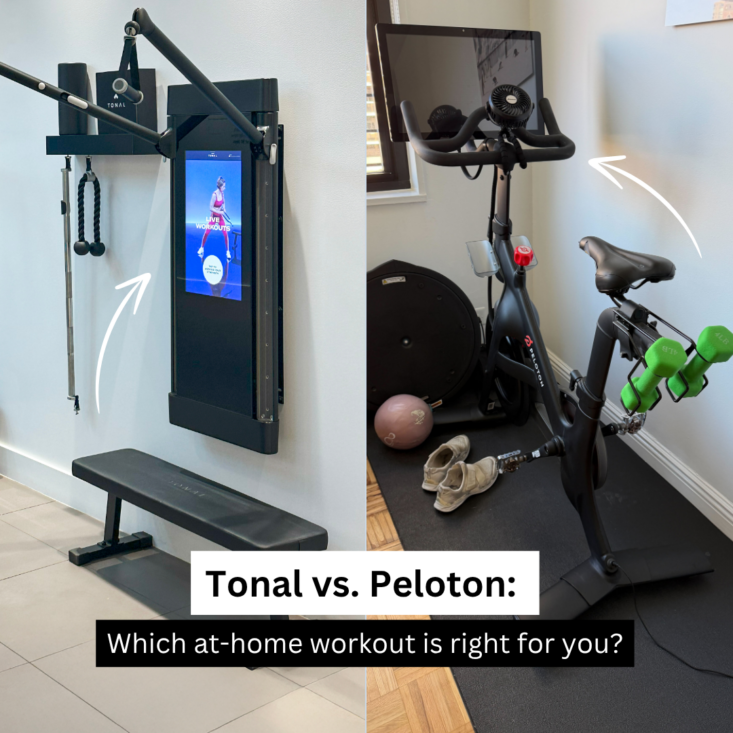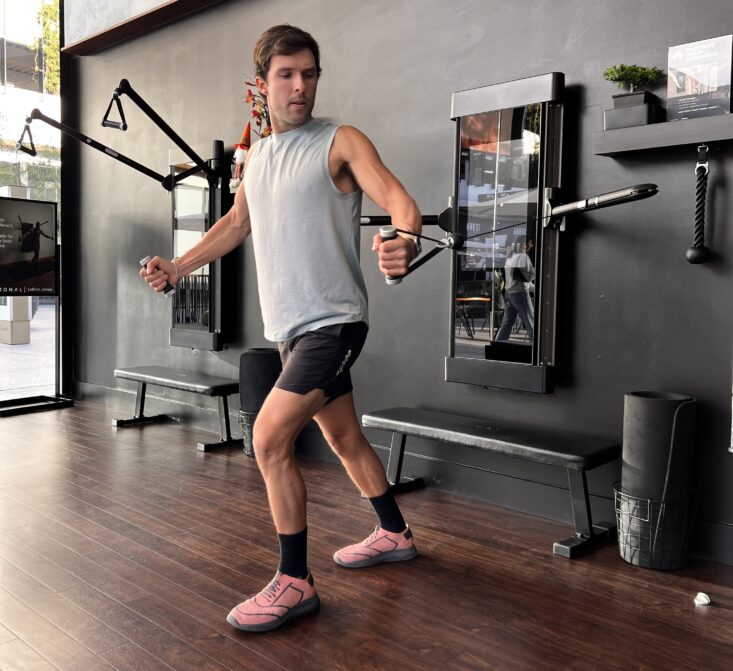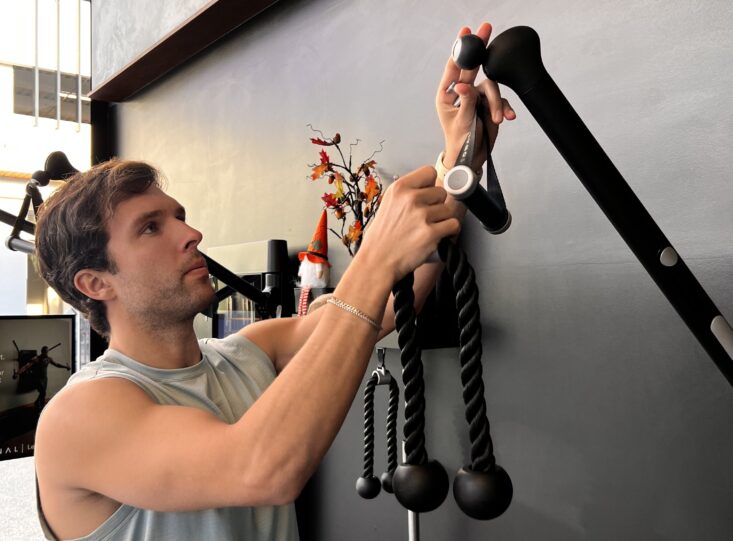
Over the last few years, at-home fitness has exploded. From streaming workout apps to connected equipment, there’s no shortage of ways to break a sweat without stepping into a gym. You’ve probably seen friends posting about their Peloton rides, maybe you’ve tried resistance bands or an all-in-one app, and now there’s a new wave of smart gyms.
As a fitness coach, I’ve tested my fair share of equipment, and Tonal and Peloton are two of my standouts. Let’s break down how the two stack up so you can decide which one belongs in your home.
If You Want True Strength Training…Tonal
Here’s the truth: cardio alone won’t sculpt your body. Peloton’s bikes and treadmills are amazing for getting your heart rate up, but if you want to build strength, tone your muscles, and prevent plateaus, you’ll need more than a pair of dumbbells tacked onto a spin class.
Tonal is built for strength from the ground up. It delivers up to 250 pounds of adaptive digital resistance that automatically adjusts to your effort. It has features like eccentric mode and drop sets, which are proven to help you build strength faster. Since adding Tonal to my routine, I’ve noticed real changes: stronger lifts, leaner definition, and more energy throughout the day.
If You’re Looking for Personalized Progress…Tonal
One of my biggest gripes with Peloton is that the classes are motivating, but not personalized. Whether you’re a beginner or advanced, everyone’s getting the same workout. That’s fine for cardio, but when it comes to strength, one-size-fits-all just doesn’t cut it.
Tonal solves that with an initial strength assessment that sets your baseline. From there, every workout is customized to your level. The system tracks your reps, sets, and even gives you a Strength Score that grows as you do. It’s like having a personal trainer who always knows exactly how much you should lift.
If You Want Variety and Motivation…Tie
Peloton’s claim to fame is its studio-style classes. From cycling and running to yoga and bootcamps, there’s always something new to try. For cardio lovers, it’s unbeatable.

Tonal has its own library of guided workouts designed by elite coaches. The difference is they’re goal-oriented programs that adapt to your progress, so it feels like you’re being trained one-on-one. Beyond strength training, Tonal also offers mobility, yoga, and cardio options to keep your fitness routine well-rounded. And with Smart View, you can see your effort, form, and progress in real time on screen, making it easier to correct your movements and push yourself, just like you would with an in-person trainer.
If You’re Tight on Space…Tonal
Living in NYC means every square foot counts. My Peloton bike took up space in my living room and still didn’t cover all my workout needs. I needed extra weights and mats just to round out my training.
Tonal, on the other hand, is wall-mounted. The sleek design folds away when not in use, leaving me with a full smart gym without sacrificing living space. It’s clean, modern, and completely self-contained.
If You’re Weighing Cost vs. Value…Tonal

Both Tonal and Peloton are investments, but here’s the catch: with Peloton, the costs pile up. You need the bike or treadmill, shoes, accessories, weights, and you still don’t get a full strength solution.
Tonal is an all-in-one system. The machine, digital weights, and AI tracking mean you don’t need racks, plates, or extras. The membership unlocks all the programming and progress tracking, making it a smarter long-term investment.
Tonal: The Clear Winner for Building Strength at Home
Peloton has earned its reputation, and for pure cardio motivation, it’s still a great choice. But if you’re serious about transforming your body by building strength, toning muscle, and seeing consistent progress, Tonal is the smartest choice.
For me, Tonal has been more than just convenient. It’s the first at-home device that actually feels like it was built for me. I’m stronger, more toned, and more energized than I’ve ever been, and it looks pretty great on my wall. The verdict is simple: Tonal wins.



